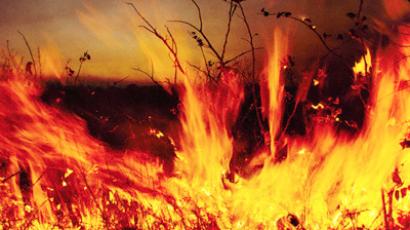Timber barons wreak devastation in Russia’s Far East
Russia’s coastal region on the border with China, some 8,000 kilometres from Moscow, is the meeting point of two mighty rivers – the Amur and the Ussuri. It harbors some of the most incredible habitats for the country’s wildlife.
But the march of the industrial moguls is putting its future on the line.Looty the tiger was found starving in the forest as a six-month-old cub. He is now 19 years old, has a pair of platinum false teeth and, as a Siberian tiger, he is one of an increasingly scarce subspecies.This region’s forests are home to some of the world’s rarest big cats. But they also host the loggers, timber mills and illegal hunters who stand to make a great profit here, and whose activities have pushed those same tigers and leopards to the brink of extinction.Lyudmila looks after tigers, bears, deer – in fact just about any injured forest animals that arrive at her center. As well as poachers, it is forestry policies and the impact they have on local habitats that concern her.“Tigers need a lot of territory to survive – there can’t be many together. When there’s forestry, the animals they prey on are scared off and so the tigers have to leave,” Lyudmila Kruglova of the Wild Animal Rehabilitation Centre told RT.So what it really comes down to is Russia's endless forests being assaulted by the power of industry. A new timber factory in the Far East eats 800,000 cubic meters of wood a year, and it is expanding. But they are not concerned by forestry, saying they are responsible loggers.“Trees are a renewable resource, unlike coal or oil,” says Vladimir Lyashenko from the Arkaim wood factory. “We plant trees to replace the ones we’ve cut down, so there’ll be plenty for the next generation.”Environmentalists paint a very different picture. They say there are no reliable records of the rampant tree-cutting and warn that Russia’s forests are not as endless as the timber barons think.“When we tell officials there’s not much untouched forest left, they and the industrialists get so angry. They say environmental organizations are trying to shut down their industry,” says Denis Smirnov of the WWF Amur division.There are others trying to replace lost forest. One local government project harvests and sorts pine seeds, grows them into saplings, and then plants them. But they admit that the planting just is not keeping pace with the felling.“In an ordinary year we can replace logging losses. But if there’s a forest fire as well, it could take us 10 years to catch up. We’re fighting a losing battle,” Ivan Denisov, the local government head of reforestation, told RT.













